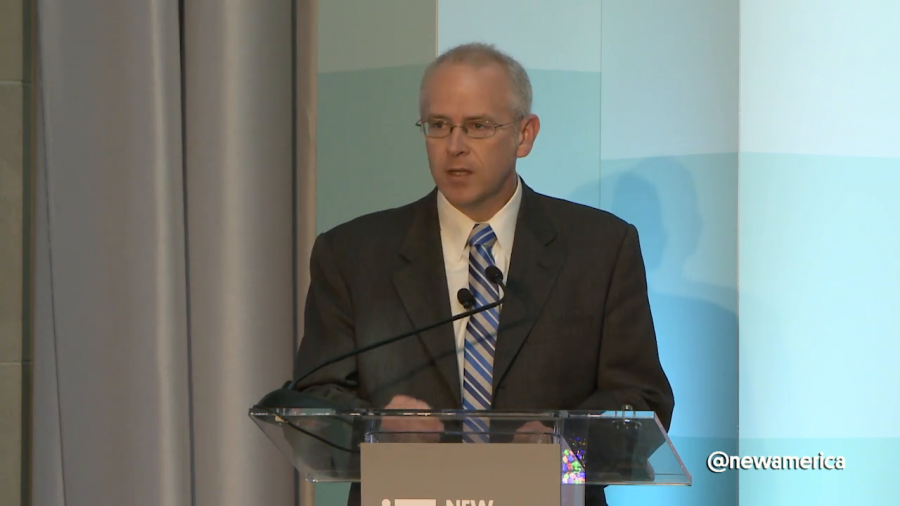I want to frame my remarks today with a quick story. Once upon a time, there’s a beautiful valley where people lived. And the valley’s full of flowers and grass, and it was beautiful. People walked most of the places they went, until one day a young man invented this amazing device called an automobile. People start driving these automobiles everywhere, and it was incredible. They got from here to there, they went fast. But people started to notice that the automobiles were kind of tearing up the countryside.
So the people came together and they said, what can we do? We don’t want to give up the benefits of this great new technology, but we don’t want to completely destroyed the countryside here, so let’s make a compromise. We’ll create these things called roads. And we’ll make a law that says whether you’re a truck or a car motorcycle, whatever you are, all the things with engines that go must stay on the road. And if we do that, we can carve out some roads, which will be a bit of a sacrifice, but we can keep the rest of the valley looking very pristine.
Well, a couple decades later a young woman had another idea for device that she called an airplane. She’s really excited about this. It was going to get us even faster, had different kinds of maybe lower impacts on the environment. She raised a bunch of money, and got together, and at her announcement the police showed up. And the police wanted to remind her that even though they’re really in favor of this great new device she had invented, to remember the law that says all the things with engines must go on the road. So she’s welcome to drive her airplane anywhere she wanted to go. But flying it would be illegal.
So, what’s the point of this little tale? The point is that the Internet provides us with a set of amazing technical capabilities. Things that we could never even dream of doing in the past. But long before the Internet even was a gleam in an engineer’s eye, there was some law that existed. Copyright law. Copyright law that regulates things like copying, like creating derivative works, like distributing copies of works.
And when you think about what the Internet is, the Internet is really a giant sharing machine. It’s a machine for making copies, for making derivative works, for making remixes and making mashups. For distributing those around the world instantaneously. And so there’s a very profound tension between what copyright enables legally, and what the Internet enables technically. And in our battle for equity and for quality education, we’re kind of fighting with one hand tied behind our back as we are caught in this tension between what we could be capable of doing, and what we’re permitted to do.
So the idea that I want to talk about today and that we’ll explore a little bit further on the panel is the idea of open educational resources. Open educational resources are essentially open-source curricula materials that are one, completely free for anyone to use and access, and come with a set of copyright permissions that make it legal for us to do all the things that the Internet makes technically possible for us to do. Thank you.
